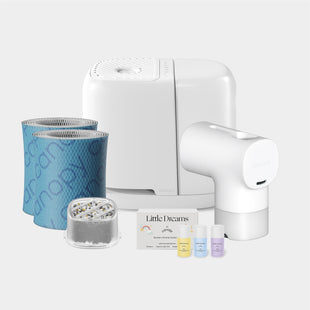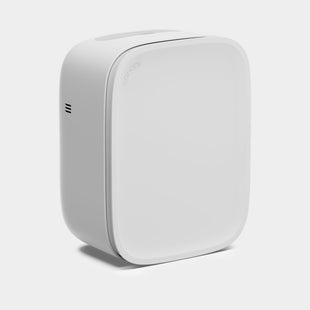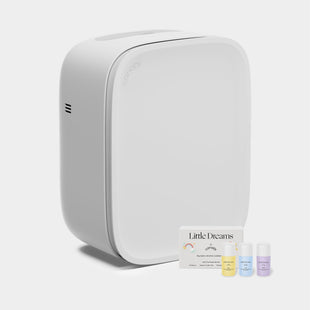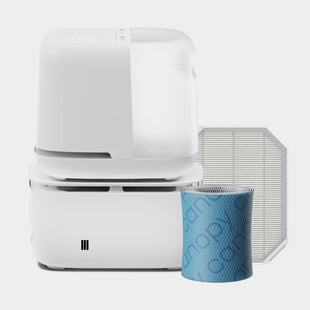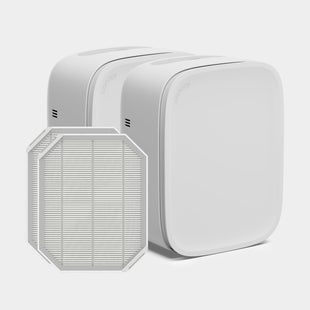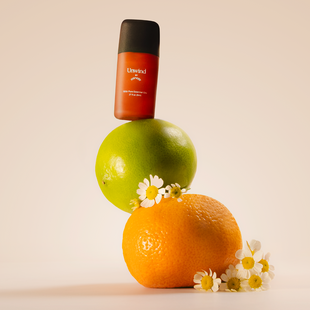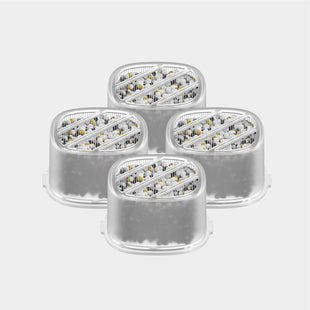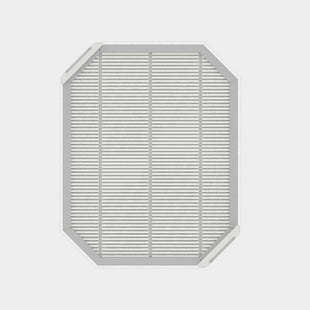This content has been reviewed and updated on July 31, 2023.
You may have heard people use the terms “soft” or “hard” when referencing water. But what does that mean, exactly? The difference between soft and hard water boils down to the dissolved mineral content it contains. Whether you’re a new homeowner with a well on the property or have noticed a change in your home’s water supply, it’s crucial to know what soft water and hard water are. Here is a deeper dive into the difference between soft and hard water, plus clues on how to determine which type is in your home.
What Is the Difference Between Soft and Hard Water?
Tap water comes from ground and surface water sourced from reservoirs, lakes, and streams. The water passes through the earth’s mineral deposits, which dissolve in the liquid.
Hardness refers to the concentration of dissolved magnesium and calcium in water. Hard water has a high concentration of these minerals. The mineral content of soft water, on the other hand, is less than 17 parts per million; the amount of calcium and magnesium in slightly hard water is 17 to 60 parts per million.
Hard water has 120 to 180 parts per million of the minerals, which means you might be able to see the particles floating around in a glass of water and taste them when taking a sip. Cooking with hard water might affect the flavor of the food as well. If the concentration of dissolved minerals exceeds 180 parts per million, very hard water is flowing through your plumbing system. Hard water might also contain iron deposits as well.
Hard water represents more than 85% of the water people use in the United States. Although the minerals in hard water are good for your health, excessive quantities can wreak havoc on appliances and cause additional concerns.

The good news is that there are ways to solve the hard water problem. Some homeowners install whole-house water softeners, which use positively charged sodium ions to replace the calcium and magnesium ions. Others prefer single-fixture filters, like a filtration shower head.
How to Tell If You Have Hard Water or Soft Water
Why Do People Prefer Soft Water?
There are different reasons people prefer soft water. Since it doesn’t contain high concentrations of dissolved minerals, there are no particles to bind with solutions. For example, soap won’t bind with particles to create scum in a tub. You won’t have to go through the time-consuming task of scrubbing the chalky substance and mineral stains off the surface when cleaning.
Does Hard Water Affect Plumbing?
Hard water causes scale buildup in the channels. This leaves less room for water to pass through, which increases the pressure inside the pipes. When enough pressure accumulates, it could cause pipes to burst.
Will Hard Water Affect My Cleaning Routine?
The minerals in hard water also prevent soap and detergent from forming and lathering. In turn, clothes may not be thoroughly cleaned during the wash cycle, they may feel gritty to the touch, or they may have clumps of detergent accumulated on the fabric. The same applies to dishes in the dishwasher, as the detergent may not lather easily and may leave streaks or food particles behind on dishes.
What Can Hard Water Do to My Skin and Hair?
If your skin looks dull or feels itchy or tight after bathing, this could be a sign of hard water. When you slather on soap, its fatty acids don’t mix well with the minerals in hard water. The product won’t become sudsy, but it will leave a semi-solid, pore-clogging residue on the skin. The gunk can trigger acne flare-ups and make eczema and other skin conditions worse.
If hard water skin problems aren’t bad enough, the dissolved minerals can cause bad hair days, too. The minerals dry out the scalp, which can cause dandruff and an unbearable itch. Calcium and magnesium also create a moisture-blocking film on strands. Moisture can’t penetrate the barrier, which can leave your locks dull and dehydrated. Shampoo won’t foam in hard water and the active ingredients aren’t as effective, so your hair won’t feel clean, either.
Dry, weak hair can break easily. According to a 30-day study performed in 2016, hair washed with hard water became much thinner than hair washed with distilled water. If your tresses feel rough and take longer to detangle, it might be time to get a water softener. That is because hard water alters hair’s pH level. Strands become more alkaline, which causes the water-repellent layer to break down.
Hard water can also ruin a dye job. Whether your hair is brown, red, blonde, or a colorful, vibrant hue, calcium and magnesium interact with the color molecules. You might notice your color-treated mane has a greenish or brassy tint after washing it in hard water.
Canopy is your choice for reimagined household devices that effortlessly optimize your home for beauty and wellness, from your bedroom oasis to your active family spaces. And we’re ready to help you upgrade one of the most important parts of your routine—the shower. Our new easy-to-install filtered shower head reduces dissolved minerals, added chlorine, and other contaminants in your household water, providing clean water that supports healthy skin and hair. Say goodbye to dull skin, brittle hair, and flaky scalp and hello to healthy skin and scalp and longer-lasting hair color.









